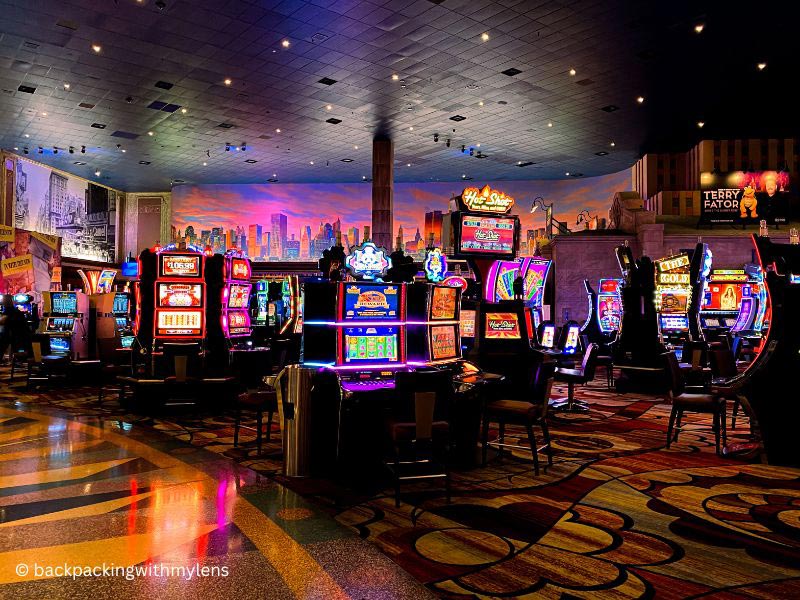Casino gaming has long been a topic of fascination and debate, drawing in millions of players around the world. With a blend of chance, strategy, and the thrill of uncertainty, casino games offer an exciting escape from everyday life. However, as entertainment becomes ever more available, it invites a more thorough examination of the morality surrounding these games.

At the heart of the debate lies the question of whether casinos promote responsible gaming or take advantage of at-risk individuals. The allure of potential winnings versus the reality of losses can create a complex situation, and understanding this balance is crucial for both players and operators. As we delve into the ethics of casino gaming, we will explore the duties of casinos, the impact on society, and the measures that can be taken to foster a better gaming environment.
The Impact of Casino Gaming on Society
Gambling in casinos has a considerable influence on society, affecting not only the financial landscape but also social behaviors and local frameworks. The funds generated from casinos can lead to employment opportunities and boost regional economies, as they provide multiple employment opportunities in multiple fields including hospitality, entertainment, and shopping. However, while the financial benefits can be substantial, communities often struggle with the potential negative impacts that arise from higher gambling activity.
Moreover, the presence of casinos can lead to an rise in gambling addiction, presenting significant challenges for individuals and families. The thrill of casino games can quickly evolve into a compulsive habit, affecting personal relationships and leading to financial instability. Many individuals may find it difficult with the loss of control over their gambling habits, resulting in a need for assistance programs and help to address this increasing issue. The social cost of gambling addiction can extend through kinships and neighborhoods, creating an urgent need for sensible gambling approaches.
In addition to the economic and social ramifications, casino gaming often showcases cultural attitudes towards uncertainty and entertainment. It can foster a sense of excitement and leisure, attracting visitors and boosting tourism. However, this allure may also conceal the wider implications of gambling as a method of entertainment, provoking ethical questions about its advertisement and availability. As communities weigh the benefits and drawbacks of casino gaming, the need for responsible practices and regulation becomes increasingly critical in ensuring that the beneficial elements are enhanced while minimizing the negative effects.
Moral Issues in Gambling Practices
The ethics of gambling gaming often center around the potential for dependency and its consequences on people and households. Betting can lead to serious monetary distress, impacting not only the betters but also their loved ones. As individuals become entrapped in the appeal of winning, many lose sight of their financial limits, which can result in catastrophic results such as bankruptcy. This poses ethical questions about the duty of gambling establishments in promoting responsible gambling habits and offering support for those who may be struggling with betting addiction.
Another major issue is the advertising of betting to at-risk groups. Casinos often target low-income people or communities with the offer of fast gains, which can perpetuate patterns of poverty and despair. In this context, the morality of marketing strategies used by casinos come under examination, as they may take advantage of the desperation of individuals seeking an escape from financial hardships. This exploitation raises moral questions about the honesty of the betting industry and its obligation to protect its most at-risk customers. https://crisiscare.uk.com/
Additionally, the effect of casino operations on the community as a whole cannot be ignored. While some argue that gambling establishments create jobs and stimulate local economies, others point to the social costs associated with dysfunctional gambling, increased criminal rates, and a burden on public services. Balancing economic benefits with the potential for community issues presents a complex ethical dilemma for policymakers and casino operators alike. The challenge lies in finding a responsible approach that takes into account the well-being of individuals and communities while still allowing for the enjoyment of casino activities.
Regulatory Framework and Duties
The oversight framework surrounding gaming games is designed to ensure equity, integrity, and gambler protection. Multiple government entities and gambling commissions establish and enforce regulations that dictate how gaming activities function, the criteria for product design, and the procedures for processing winnings. These regulations differ by jurisdiction but usually involve permit requirements for businesses and strict measures to stop fraud and fraud.
In addition to regulatory bodies, gambling businesses bear significant responsibility in maintaining ethical standards within their facilities. They must implement safe gaming practices that encourage player security and education, including presenting self-limitation options and sharing information about the hazards connected to betting. Casinos are also obligated for instructing employees to spot signs of difficult betting and be aware of the correct measures to assist visitors in need.
Additionally, clarity in gambling operations is vital for gaining and keeping public confidence. Operators should offer clear information about the chances of activities, advertising opportunities, and any associated dangers. By promoting an atmosphere of transparency and responsibility, gambling establishments can help reduce the potential harmful impact of betting while enhancing the general gaming experience for all players.
